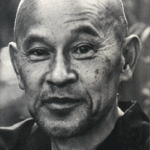Can you recall the last time you went into a situation like a baby, having an empty mind, no preconceptions, no thought of knowing about what awaits you? Most people cannot recall such a time.
When we confront something thinking we already know about it, we are not near as open to learning. Shunyru Suzuki, the founder of the Zen movement in the United States, speaks of “Beginner’s Mind” or shoshin. This is very difficult. It is not easy to empty one’s vessel but the more full our vessel, the less room for anything new. “Beginner’s mind” is an aspiration few people have ever mastered. The good news is that you don’t need to master shoshin to benefit from the practice. We learn that this is possible by keeping one’s ego in check, by making a real effort to enter every situation with room in one’s vessel, by being humble with knowledge and by being confident that there are lessons in every being and every thing.
Many traditions speak of this concept.
Picasso made reference to the “unlearning” process essential to making his art. Unlearning is not easier than learning. It is probably harder for most people to unlearn and yet unlearning is necessary to discover what is simple and true.
The Muslim declaration of faith, the shahada, begins by creating negative space to then be filled with G-d’s presence. “La ilaha” means “There is no G-d.” In this, it is said that we must eliminate false paths and attachments in order to make room for the one G-d.”
In Judaism, there is the Kabbalistic concept of tzimtzum where G-d contracted G-d’s omnipresence and completeness in order that there be room for creation. New ideas are themselves acts of creation. When we enter new situations and have no space because we think to ourselves, “I know this,” we do not know enough and will not know more.
The 1st century Zen Master Linji Yixuan, probably going for shock value, is believed to have said, “If you meet the Buddha on the road, kill him.” Please do not take this literally. If you really do meet the Buddha on the road, refrain from violence. What Linji meant was that if we are on the road to enlightenment, we need to slay what we think of Buddha. In order to learn, we must forget what we think we know.
Edward Brown was ordained a Zen Priest by Shunryu Suzuki in 1971 after serving as Chef and student during the foundation of the Zen movement in the United States. He once told me that the secret to baking good bread was to forget the taste of bread. I took this to mean the very same thing as “kill the Buddha.”
So it is that we should all seek to kill the Buddha. By leaving preconceptions behind and keeping an open mind, we learn and grow.
Some relevant links:

Thank you a lot for sharing this with all of us you actually understand what you’re talking about!
Bookmarked. Please additionally visit my site =). We can have a link exchange agreement among us
When some one searches for his required thing, so he/she wants to be available that in detail, thus that thing is
maintained over here.
What a joy to find such clear thigkinn. Thanks for posting!